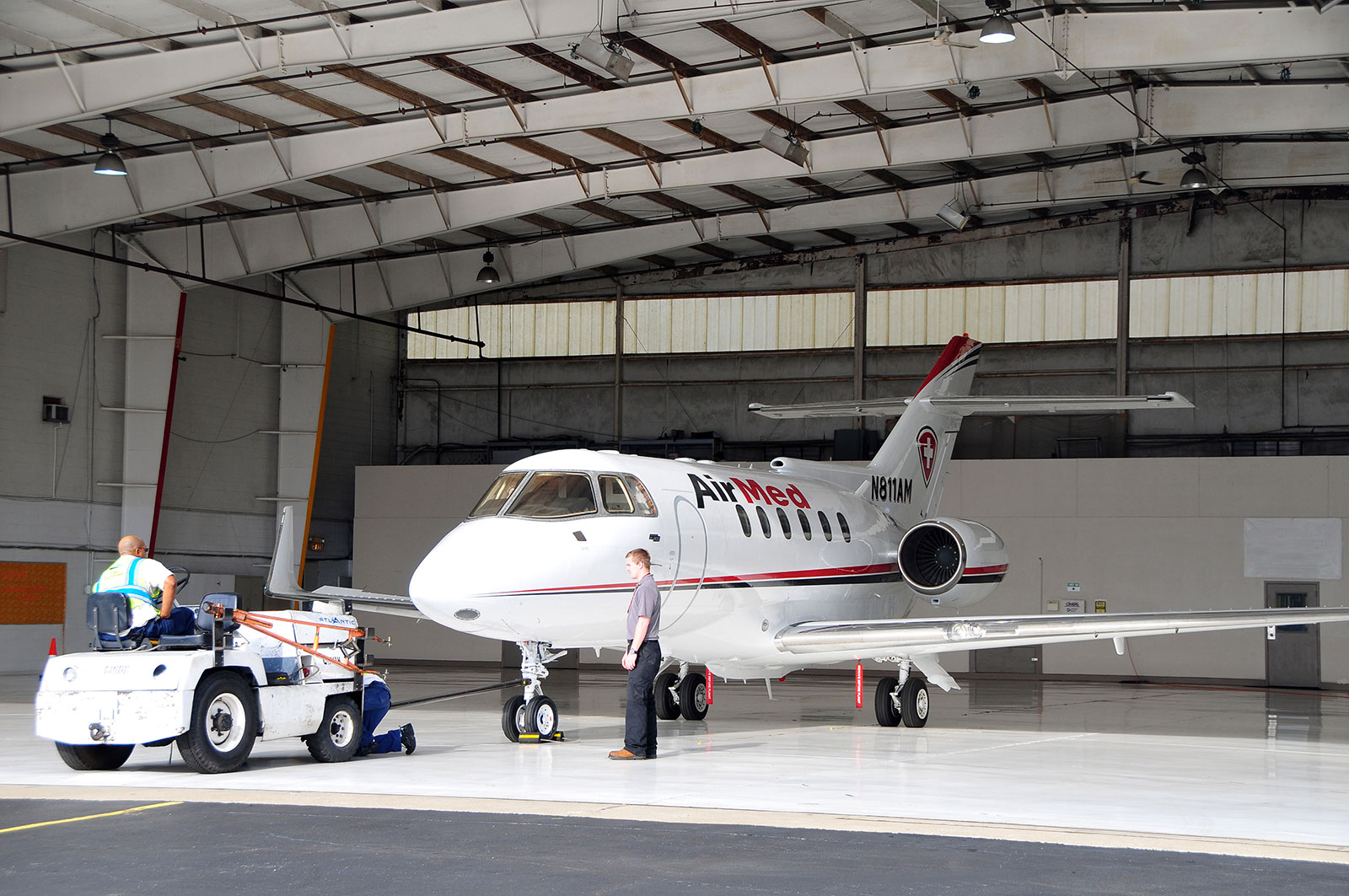AIRMED AND HCA GET FIRST-TIME PARENTS HOME IN TIME FOR BIRTH

Posted on December 30, 2018
In the furniture delivery business, it’s called “white glove” treatment: workers deliver a new piece of furniture, remove the old and leave your place spotless. That’s the analogy David Pate uses for the way AirMed International handled a much more important delivery – his pregnant wife Cassandra.
“I felt very comfortable and confident with everything that the team was doing the whole way,” Pate said.
The Pates, who live in north Texas, were visiting the North Carolina coast over Memorial Day, for what they figured was their last trip before the due date for the couple’s first child, a boy. The day before their scheduled return, her water broke.
David googled the nearest hospital with a high level of NICU (Natal Intensive Care Unit) care and checked Cassandra in. Doctors there confirmed a membrane rupture and prescribed bed rest until she reached 34 weeks, when it would be customary to deliver the baby in such a case as this.
That would mean spending another four weeks in North Carolina, away from their support system of friends, family and church members back in Texas. If the newborn spent another couple weeks in NICU, as might be expected, the family was looking at up to two months total in unfamiliar surroundings.
Mr. Pate has nothing but praise for the physicians and nurses who cared for his wife in North Carolina, but the stress of being away from home was not helping his wife. He discovered that the benefits package of his employer, Hospital Corporation of America (HCA), covers medical transport by AirMed International for cases in which beneficiaries are at least 150 miles away from home and not being cared for in a HCA hospital.
David says the care coordinator for AirMed International was extremely helpful, giving him a step-by-step rundown of how Cassandra would be cared for and sending him regular updates on when the flight would take place. He was impressed by the door-to-door transport care his wife received. After landing at the nearest airport in North Carolina, an AirMed crew traveled to the hospital via local ambulance, picked up Cassandra, took her to the airplane, carried her onto the plane, flew with her to Texas, and then accompanied her to her new room at the HCA hospital in Texas.
“They were with my wife literally from the bed in North Carolina to the bed in Dallas,” David said. The flight was fortunately uneventful but the crew’s make-up – physician, respiratory therapist, nurse for the mother, and a nurse for the baby – meant they were prepared for virtually any contingency. There was even an isolette in case of in-flight birth.
Pate, on the ambulance ride from the hospital to airport, took comfort from hearing about some of the other transports the crew members had made. “The AirMed team was sharing stories of traveling to India, Australia, Iraq,” David said, adding that “We felt the AirMed team was very prepared to handle anything.”